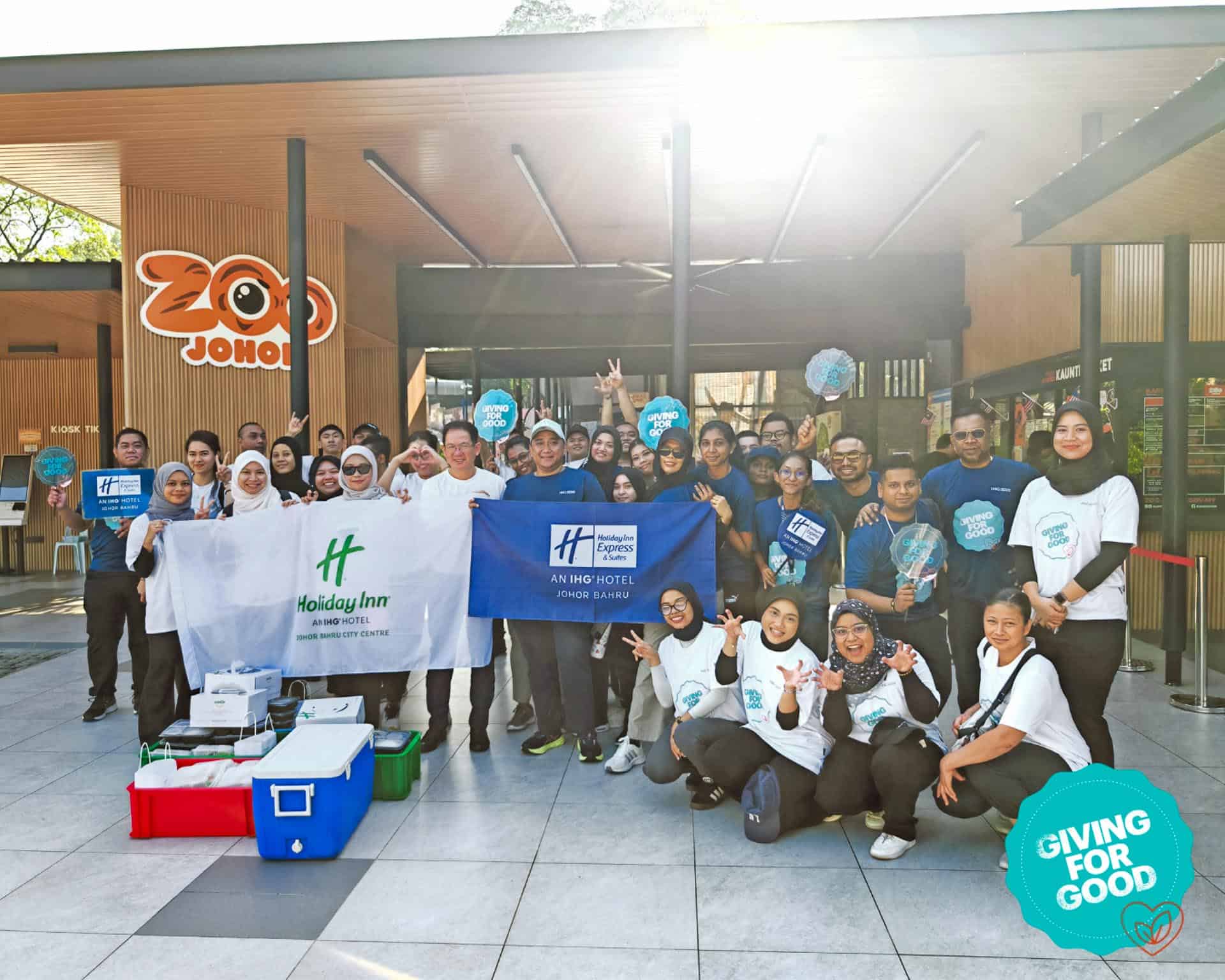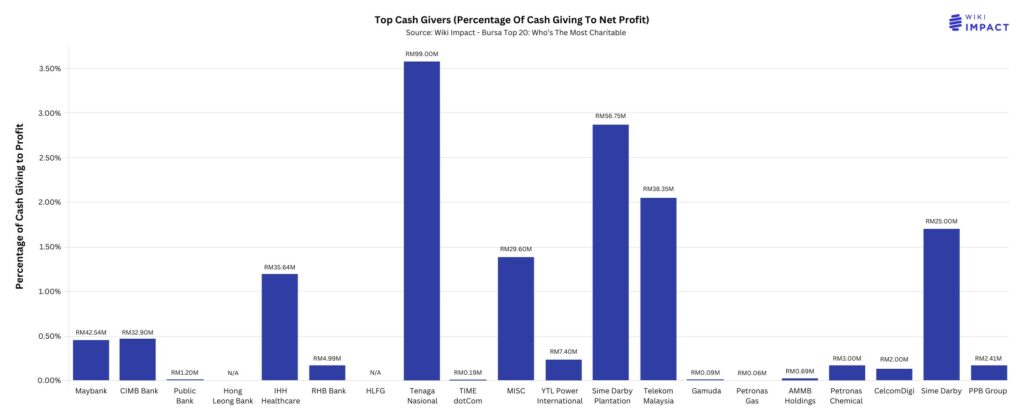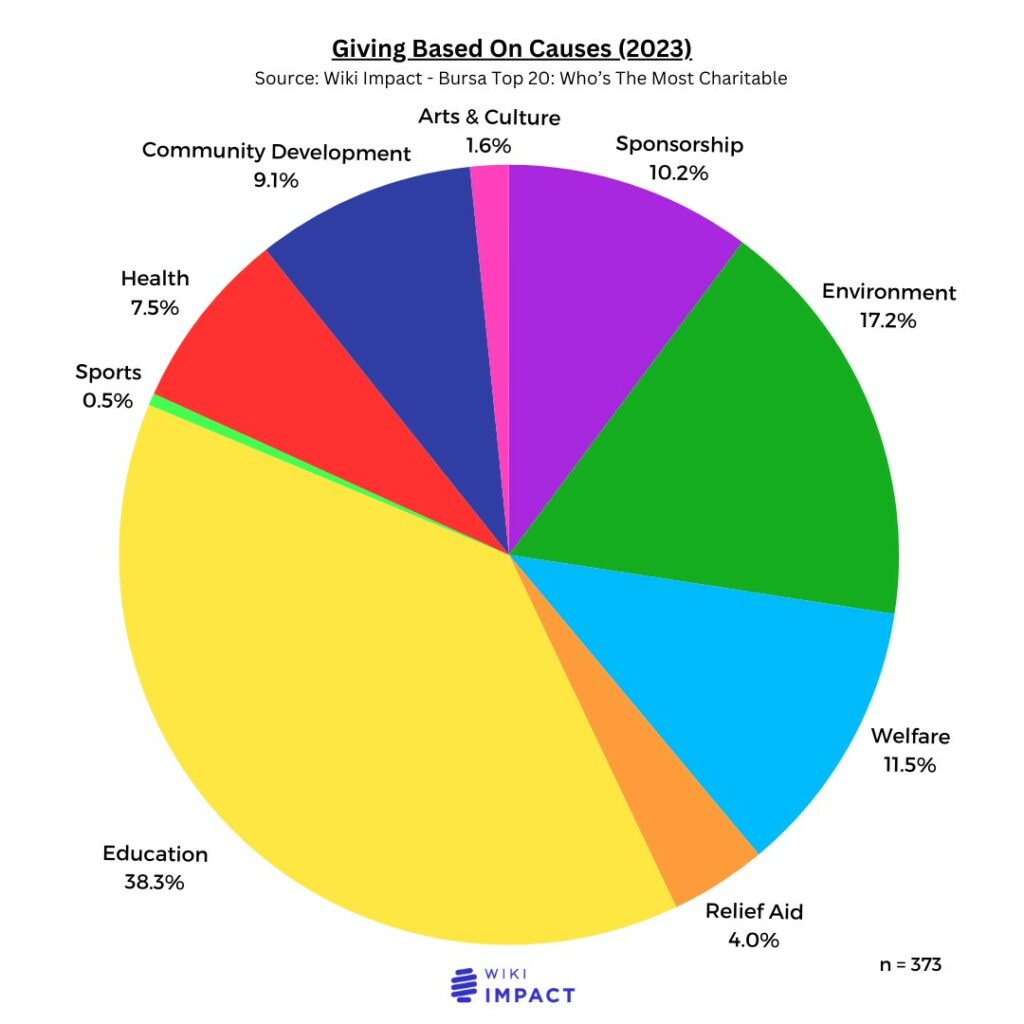
Tenaga Nasional, Sime Darby Plantation and Telekom Malaysia ranked among the top cash givers based on giving-to-profit ratio.
Kuala Lumpur, 13 November, 2024 – The newly released Bursa Top 20: Who’s the Most Charitable? Report unveils the top 20 publicly listed Malaysian companies making significant strides in corporate philanthropy.
The 2023 analysis reveals substantial growth in corporate contributions, particularly cash donations, with these companies collectively donating RM381.81 million in 2023—nearly tripling the 2022’s total of RM129.25 million.
This rise signals a strengthened commitment on social responsibility by the corporate sector aiming to uplift communities, support environmental causes, and enhance Malaysia’s philanthropic landscape.
In its third year, the report provides an in-depth examination of the philanthropic efforts of Malaysia’s top Bursa-listed companies, drawing insights from financial reports and sustainability disclosures.

Three major trends emerge:
The top 20 Bursa companies donated RM381.81 million in cash in 2023, a sharp increase from RM129.25 million the previous year. This reflects growth in corporate philanthropy and reporting transparency. The average cash-giving-to-net-profit ratio rose to 0.82%, up from last year’s figure of 0.35%.
For global context, top U.S. corporate donors like Gilead Sciences contributed $388 million in 2019 (2.90% of pre-tax profit), while Goldman Sachs Group donated 2.50% of its pre-tax profits, totalling $280 million.
Meanwhile, India stands out as the first country in Asia to mandate corporate social responsibility (CSR). Under the Companies Act 2013, qualifying companies must allocate 2% of their average net profit over the past three years to local social and environmental causes.
Beyond cash donations, companies made substantial in-kind contributions, such as food, products, and volunteer services through CSR programs. However, some reported total community investments without detailing the value of in-kind contributions.
Gamuda Berhad emerged as the top in-kind contributor, donating RM82.89 million (equivalent to 4.51% of net profit).
Meanwhile, Malayan Banking Berhad logged an impressive 227,102 volunteer hours—over 15 times the 14,709 hours recorded last year.
“True transparency in corporate giving goes beyond cash donations to include in-kind contributions. Without detailed data, companies risk oversimplifying their community investment, blending cash and in-kind giving and masking their full impact,” said Terence Ooi, Co-Founder of Wiki Impact.
Education remains a top priority among corporate causes, with 38.27% of total corporate giving from the top 20 companies directed towards educational initiatives. These contributions fund training programmes, skills development, and educational facilities.
Environmental causes also saw significant support, receiving 17.25% of corporate contributions, with companies investing in sustainability efforts like reforestation and conservation projects.

Despite these gains, the report identifies an ongoing challenge with consistency in reporting and transparency. Only eight companies incorporated the Bursa ESG Reporting Performance Data Table Template in their 2023 annual reports, leading to significant variations in how donations—particularly in-kind contributions—are reported.
This lack of standardisation complicates comparative analysis, emphasising the need for clearer guidelines to foster transparency and accountability in Malaysia’s corporate philanthropy.
The Bursa Top 20: Who’s the Most Charitable? report stands as both a benchmark and a rallying call. As corporate philanthropy grows, companies are encouraged to weave giving into their sustainability strategy, driving impact that reaches beyond profits.
“Profit-making companies must recognise corporate philanthropy not just as an obligation, but as an investment in the future and a responsibility for those who have the means. While this report highlights that corporate philanthropy is gaining momentum and emerging as a powerful driver of societal and environmental change, we hope it will inspire more companies to strengthen their commitment to responsible giving and transparency. It is essential in tackling Malaysia’s pressing issues such as educational gaps, youth unemployment, and environmental challenges where government and non-profit resources often fall short,” said Ooi.
